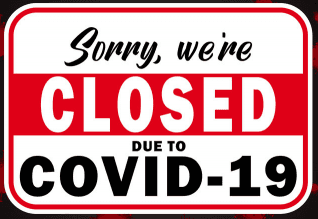 Business interruption claims against Society can move forward to trial, ruled U.S. District Judge Edmond E. Chang. Filed on Feb. 22, 2021, the judge’s opinion addresses and denies Society’s motion to dismiss several business interruption claims related to the Covid-19 pandemic.
Business interruption claims against Society can move forward to trial, ruled U.S. District Judge Edmond E. Chang. Filed on Feb. 22, 2021, the judge’s opinion addresses and denies Society’s motion to dismiss several business interruption claims related to the Covid-19 pandemic.The three bellwether cases selected by the court are:
- Big Onion Tavern Group, LLC, et al. v. Society Insurance, No. 1:20-cv-02005
- Valley Lodge Corp. v. Society Insurance, No. 1:20-cv-02813
- Rising Dough, Inc., et. al. v. Society Insurance, No. 1:20-cv-05981
Judge Chang wrote: “As detailed in this Opinion, Society’s motion to dismiss and summary judgment are denied to the extent that they target the claims for business-interruption coverage. Those claims do survive. Also, the Section 155 claims survive in Big Onion and Valley Lodge. But the summary judgment motions in the Big Onion and Valley Lodge actions are granted as to the coverage theories under the Civil Authority and the Contamination provisions, and in the Rising Dough case as to the Sue and Labor clause.”
Causation
To begin untangling the policy’s text, the judge wrote, the policy first requires that the business suspension be caused by direct physical loss of (or damage to) covered property.
Proximate Cause
The judge’s decision turned on the definition of “proximate cause” of the shutdowns. The judge ruled that a jury should hear and decide the disputed meaning of “proximate cause.” The insured must be able to point to a direct physical loss of property as the cause of the business’s suspension. But then the policy says the loss of property that is the cause of the suspension must, in turn, be caused by or result from a Covered Cause of Loss.
“So putting the coverage together with the definition, a covered business suspension must be caused by direct physical loss of covered property – and then the loss itself must be caused by or result from a direct physical loss,” the judge wrote.
Society argued first that the Plaintiffs’ businesses have been interrupted by the various state and local shutdown orders and not by the coronavirus itself. Society’s line of thinking was that even if the coronavirus and the resulting pandemic could qualify as a “direct physical loss,” it is really the governmental orders that caused the suspensions of business, and those orders don’t qualify as a “direct physical loss” under the policy.
However, ruled the judge, Society’s characterization of the business interruptions is not supported by the governing law of the pertinent states, none of which impose such a strict causation requirement. The judge in his ruling cited several precedents to support this point.
Direct Physical Loss
Many insurers have avoided honoring policies over the Covid shutdowns by arguing that the Covid pandemic did not result in direct physical loss to a business, a prerequisite for triggering coverage. The meaning of “physical” is key to the ruling.
The question is whether the Plaintiffs’ loss is “physical” in nature, and whether it is caused by the coronavirus itself, the coronavirus pandemic, or government shutdown orders. The operative text to trigger coverage is “direct physical loss of or damage to covered property.”
The judge wrote that, “The disjunctive ‘or’ in that phrase means that ‘physical loss’ must cover something different from ‘physical damage.’”
“It would be one thing if coverage were limited to direct physical ‘damage,’ the judge wrote. “But coverage extends to direct physical ‘loss of’ property as well. So the Plaintiffs need not plead or show a change to the property’s physical characteristics.”
Damage vs. Loss
In his decision, the judge clarified the difference between “loss” and “damage.” The difference is key to understanding why the judge decided the case deserved to be heard by a jury.
“The more challenging interpretive question is whether the restrictions imposed on the Plaintiffs’ use of their premises count as physical loss,” the judge wrote. Both sides agree that the plaintiffs were able to use some of their premises.
“These on-site service restrictions have caused most of the Plaintiffs’ losses for which they seek business-interruption coverage,” wrote the judge.
Physical Nature of Loss
The decision pivots on the meaning of the physical nature of loss. Society says the Plaintiffs’ losses are not physical, but the judge ruled that a reasonable jury could find the Plaintiffs did suffer a direct “physical” loss of property on their premises. In effect, because the Plaintiffs cannot use, or fully use, their physical space, they suffer physical loss, or, at least, a jury could rule they suffer such loss.
RELATED
- Business Interruption Claims Attorney
- Hope for Covid Business Interruption Cases
- Deadlines loom for Covid Business Interruption Claims
- Frequently Asked Questions in Covid Business Insurance Claims

by Matthews & Associates




